
Switching from oil to gas heating could impact your savings. This guide will help you understand the cost to convert from an oil furnace to a gas furnace.
AC replacement in Denver, Colorado, costs $5,064 on average, with costs ranging from $3,306 to $8,828 depending on AC type, unit size, home size, SEER, and more. A local pro can give you a unique quote based on your home’s needs.
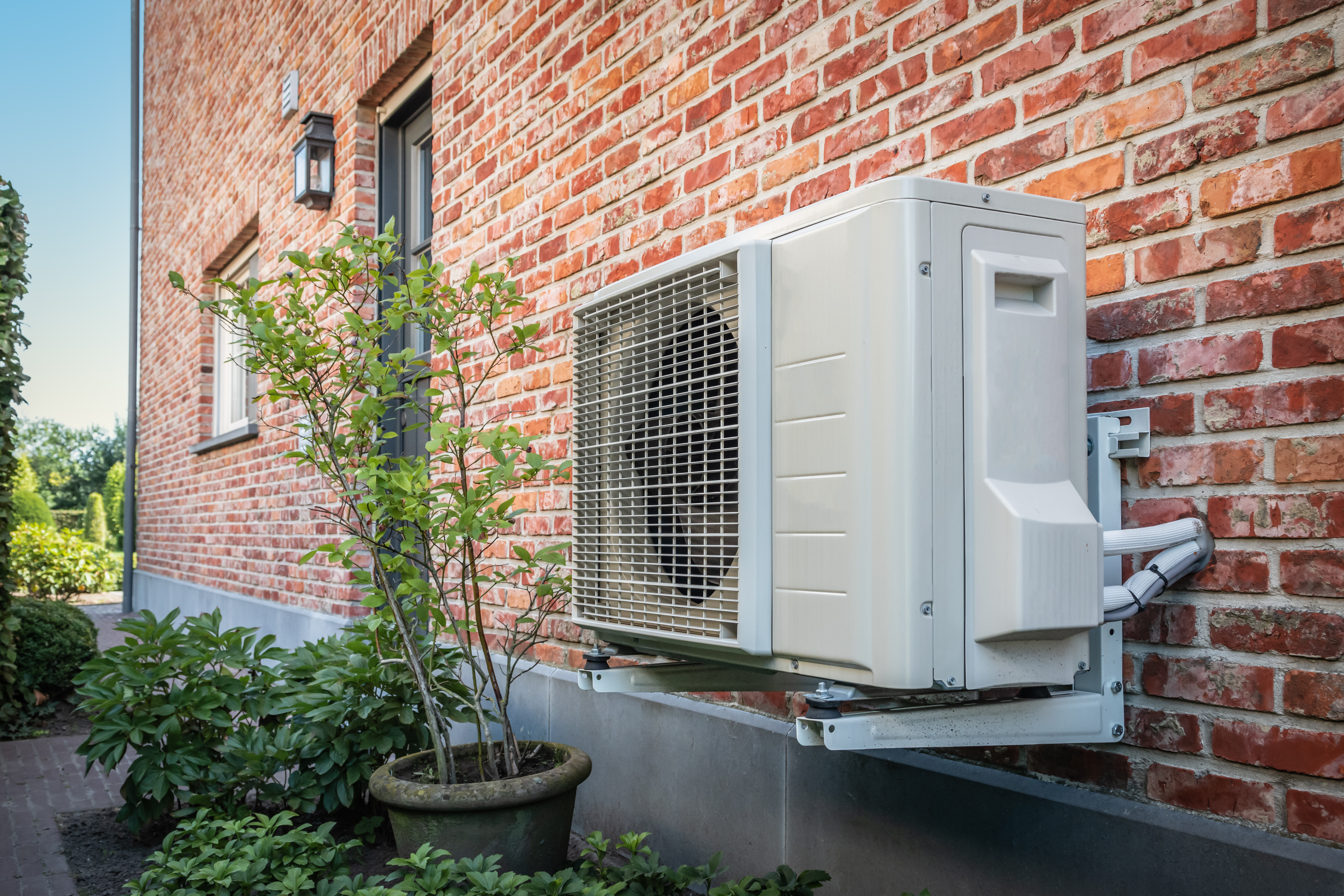

The average Denver home is 1,300 square feet, requiring 2 to 2.5 tons of AC.
The minimum AC SEER requirement in Denver is 14, but many homes opt for 16 to 18.
Summer brings wildfires and temps around 92 F in Denver, making AC crucial.
Central AC is most common, and digging for geothermal can be difficult and expensive.
The average AC replacement cost in Denver, Colorado, is $5,064, with totals ranging from $3,306 to $6,828 depending on the type and size of the AC unit, your home’s size, the unit’s energy efficiency, and other factors. Many people think of Denver as a cold, snowy place, but its summers can be surprisingly hot and dry, with average temperatures ranging from 83 to 92 degrees Fahrenheit. Summers can also bring wildfires, which means you can’t always rely on a fresh breeze to cool down the house. As such, homeowners know how important a working cooling system is here.
The cost to replace an AC system in Denver depends on many different factors. Here’s what you can expect to spend based on home size, AC size, type of AC system, and other common cost factors.
The median home size in Denver is 1,300 square feet, which will need an AC of about 2 to 2.5 tons. Here’s the AC tonnage you’ll need based on home size, plus what it costs on average.
| Home Size (Square Feet) | Tonnage | AC Cost |
|---|---|---|
| 1,200 | 1.5–2 | $1,400–$1,870 |
| 1,300 | 2–2.5 | $1,870–$2,335 |
| 1,500 | 2–3 | $1,870–$3,310 |
| 1,800 | 2.5–3 | $2,335–$3,310 |
| 2,000 | 3–4 | $3,310–$5,070 |
| 2,200 | 3.5–4.5 | $4,440–$6,830 |
| 2,500 | 4–5 | $5,070–$7,560 |
| 3,000 | 5+ | $7,560–$10,222 |
To find the right amount of cooling power to match your home’s square footage, you need to pay attention to AC sizes. AC units are measured in tons and British thermal units (BTUs), or how much heat the AC system can remove in one hour. Every 400 to 500 square feet requires about one ton of AC, which is equivalent to roughly 12,000 BTUs.
While you can estimate the AC size for your home, it’s best to let an AC installer in Denver, Colorado, calculate the optimal size to meet your cooling needs.
| Tonnage | BTUs | AC Cost |
|---|---|---|
| 1.5 | 18,000 | $1,400–$1,870 |
| 2 | 24,000 | $3,306–$5,064 |
| 3 | 36,000 | $4,960–$6,828 |
| 4 | 48,000 | $5,500–$8,000 |
| 5 | 60,000 | $7,560–$10,222 |
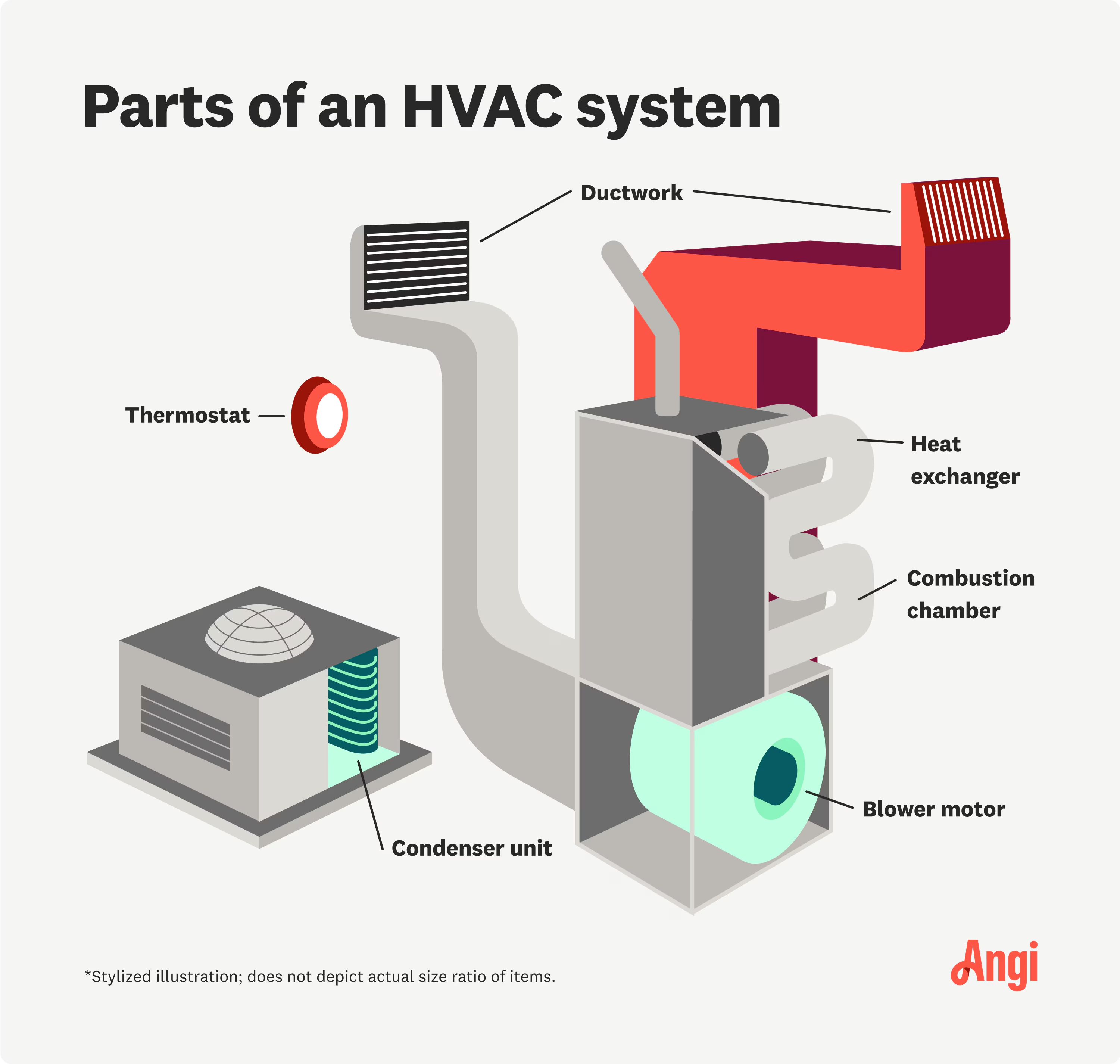
In Denver, the most common type of AC is central air. However, other types of AC, including ductless systems, window units, and even geothermal heat pumps, are also available. However, keep in mind that Denver is a major city, so space is limited, making geothermal installations more challenging and expensive.
Here are the average costs, plus the pros and cons, for each type.
| Type of AC | Average Cost | Pros | Cons |
|---|---|---|---|
| Central | $3,306–$6,828 | Whole-house cooling | Higher maintenance |
| Window | $60–$400 | Low cost | Limited cooling capacity |
| Portable | $80–$700 | Moves from room to room | Takes up floor space |
| Ductless | $3,600–$8,800 | No need to install ducts | Visible in each room |
| Geothermal | $30,000–$60,000 | Energy-efficient | Difficult to install in Denver |
The efficiency of an AC system is measured by Seasonal Energy Efficiency Ratio, or SEER, and the government requires a minimum SEER for all units in specific regions. For Denver, all AC systems must be at least 14 SEER. Many homes in Denver have AC units with 16 to 18 SEER, and the more efficient the system, the lower your energy bills will be. Plus, more efficient units qualify for rebates.
| SEER | Cost |
|---|---|
| 14–15 | $1,400–$3,306 |
| 16–17 | $4,000–$5,064 |
| 18–19 | $6,828–$7,500 |
| 20+ | $8,000–$10,222 |
Replacing an AC system requires a licensed professional, proper inspections, and permits. Here’s how much you’ll spend to hire a pro and apply for permits in Denver.
The cost to hire a pro for AC replacement in Denver is $1,000 to $4,000, or about 30% to 50% of the project total. This job must be left to pros who are properly certified, per Clean Air Act requirements from the U.S. Environmental Protection Agency (EPA).
You will need a permit from the Denver Community Planning and Development office for many AC replacement projects. The cost of the permit depends on the project valuation, and you may also have to pay a plan review fee.
Permits cost $35 (with no review fee) for projects $500 to $2,000, plus $8 for each additional $1,000 in project value. Projects over $2,000 also have a plan review fee of 50% of the permit cost. For a $5,000 AC replacement, you’d pay a $59 permit fee plus a $29.50 review fee.
Always check with the city for the permit costs and associated fees based on your specific project. Fortunately, your HVAC pro can secure the permit for you. The company will include the cost of the permit within your project contract.
An HVAC pro often handles the entire replacement process. But if you live in an older home or simply need to make some upgrades to your electrical panel and plumbing to support a different type of AC system than you had before, consider hiring these pros in addition to an HVAC specialist:
Electrician: Need an electrical panel upgrade to support your new AC system? Leave that job to a skilled electrician. Hiring an electrician in Denver costs $166 to $554.
Plumber: While HVAC pros often handle drain line installation, you can also hire a plumber to handle this task. Because winters can bring extremely cold temperatures in Denver, consult a plumber about winterizing your AC, too. Hiring a plumber in Denver costs $202 to $529.
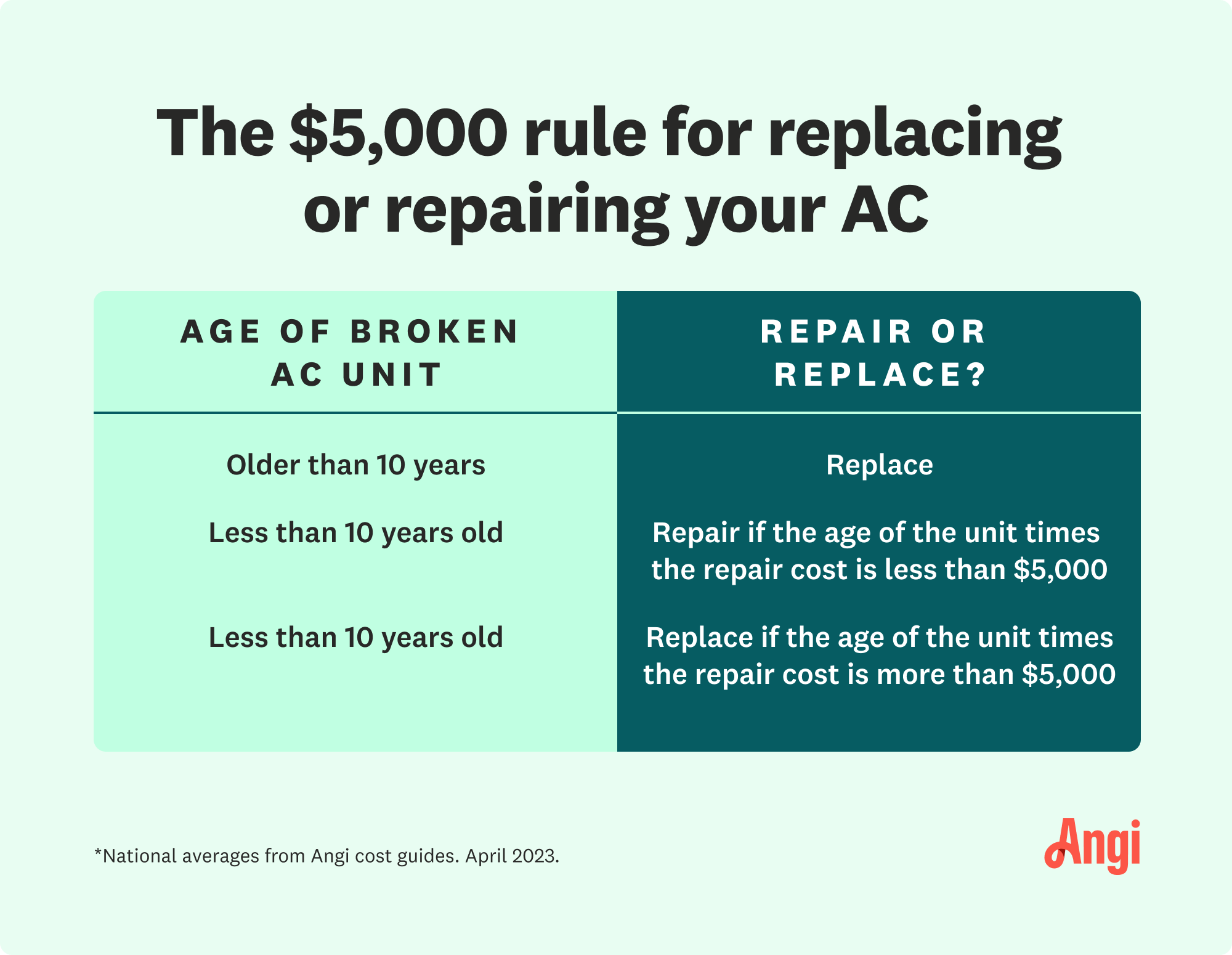
Replacing an older AC system in a Denver home can increase the home’s value by 5% to 10%, and you’ll get a better ROI by installing a system with a higher SEER. AC replacement offers an average ROI of 30%. Of course, being able to enjoy cool air when the outside temperature in Denver is sweltering all summer long is priceless.
Home is the most important place on earth, which is why Angi has helped more than 150 million homeowners transform their houses into homes they adore. To help homeowners with their next project, Angi provides readers with the most accurate cost data and upholds strict editorial standards. We survey real Angi customers about their project costs to develop the pricing data you see, so you can make the best decisions for you and your home. We pair this data with research from reputable sources, including the U.S. Bureau of Labor Statistics, academic journals, market studies, and interviews with industry experts—all to ensure our prices reflect real-world projects.
Want to help us improve our cost data? Send us a recent project quote to [email protected]. Quotes and personal information will not be shared publicly.
From average costs to expert advice, get all the answers you need to get your job done.

Switching from oil to gas heating could impact your savings. This guide will help you understand the cost to convert from an oil furnace to a gas furnace.
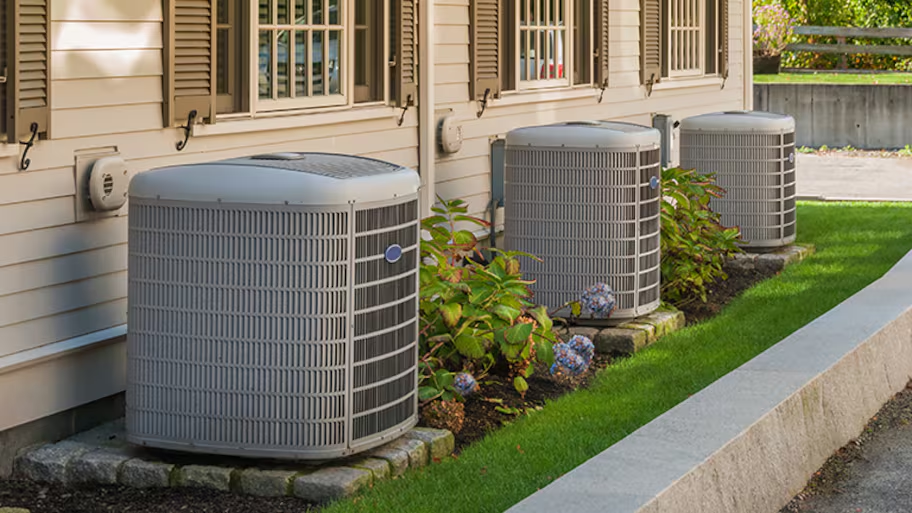
HVAC replacement costs depend on a lot of factors, like unit type, size, and labor. See what you can expect to pay for HVAC replacement here.
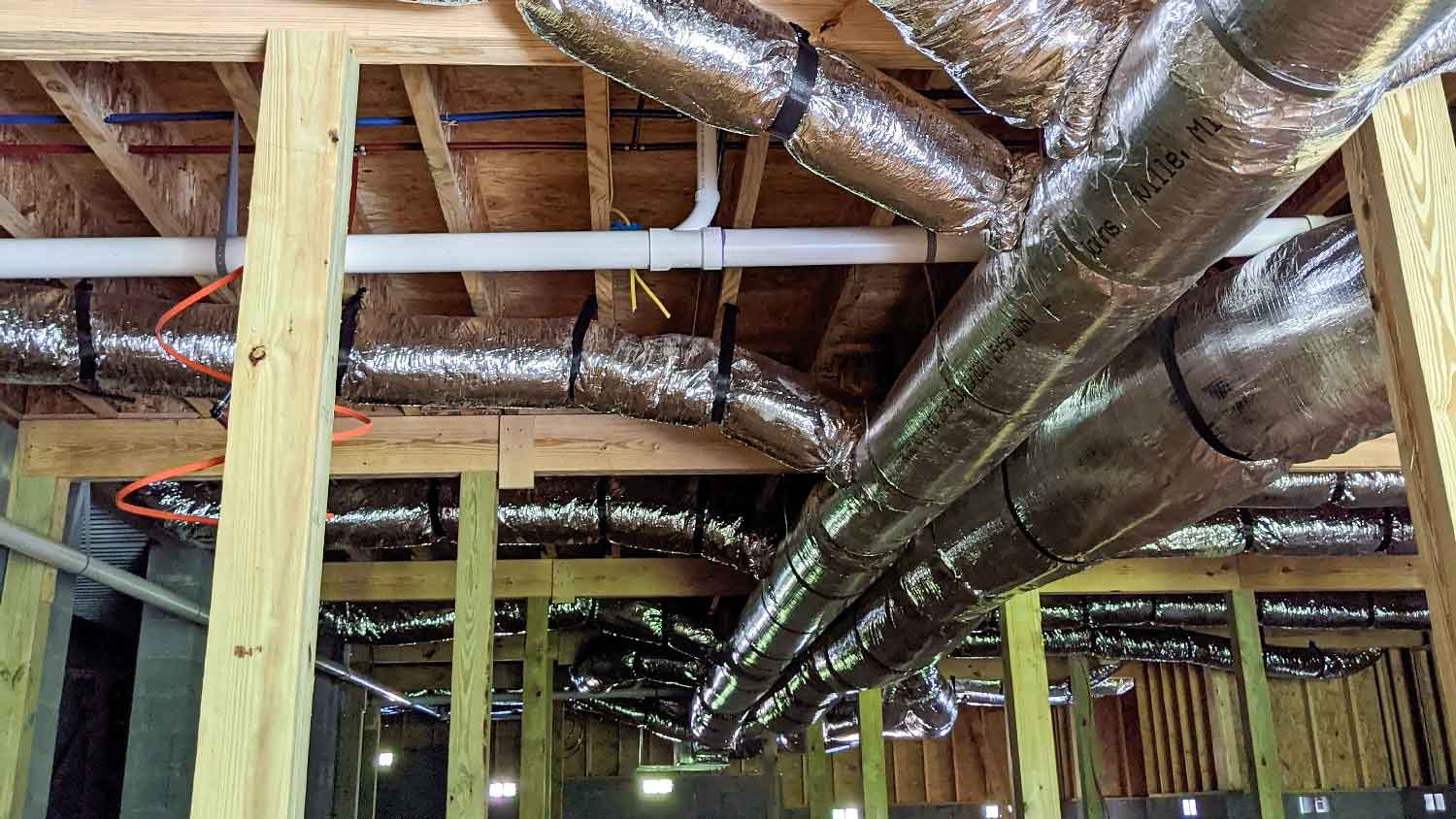
Discover the cost to install ductwork. Learn about average prices, cost factors, and tips to save money on your ductwork installation project.

Baseboard heater covers can endure a lot of wear and tear, but eventually you’ll want to replace them. Here’s the best way to switch out baseboard heater covers.

Not sure who to hire to install radiant floor heating? Learn which pros handle radiant floor heating installation and how the work comes together.

Thinking about installing a heat pump in your home? Learn about the different types of heat pumps and the options you can choose from in this guide.